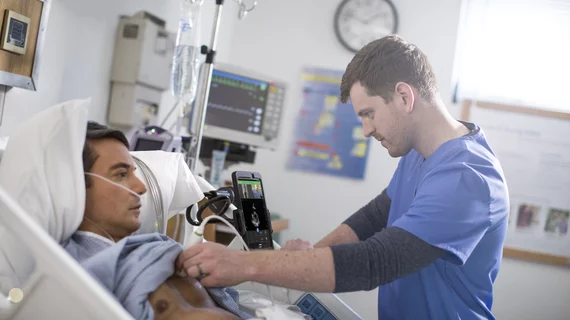FDA grants Philips ‘industry first’ clearance to use ultrasound for COVID cardiac, lung complications
The U.S. Food and Drug Administration has granted Royal Philips “industry first” clearance to market its ultrasound systems for the management of lung and cardiac complications stemming from COVID-19.
In a Wednesday announcement, the Amsterdam-based company noted that this modality has become a useful tool for providers battling the pandemic, given its portability and easy-to-clean surfaces.
“With this regulatory clearance we can offer clear guidance to ensure safe and effective use of ultrasound to manage COVID-19-related lung and cardiac complications,” Bich Le, senior VP and general manager of ultrasound at Philips, said in a May 13 statement. “At the same time, we are investing significantly to ramp up production globally, including at our ultrasound manufacturing plants in the U.S.”
Radiology researchers have recently highlighted this modality’s utility in managing patients suspected of having the disease. A trio of clinicians, for instance, hit on some of the benefits in an article published Wednesday in Clinical Radiology.
In its announcement, Philips highlighted ultrasound’s value in imaging both peripheral lung tissue impacted by pneumonia, and the effects COVID progression may have on heart function. Emergency department and intensive care unit clinicians, in particular, have deployed ultrasound to help keep patients stationary and limit transmission.
Philips said the new FDA clearance applies to its EPIQ and Affiniti series of ultrasound systems, along with the Lumify, CX50, and “off-cart solutions” such as the QLAB Advanced Quantification Software.

